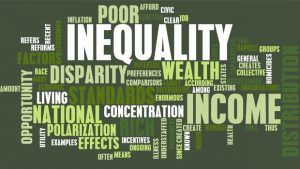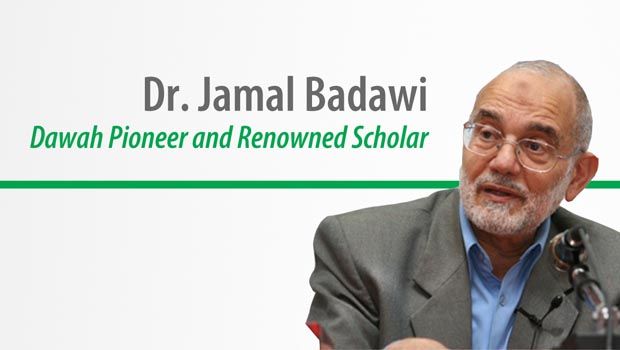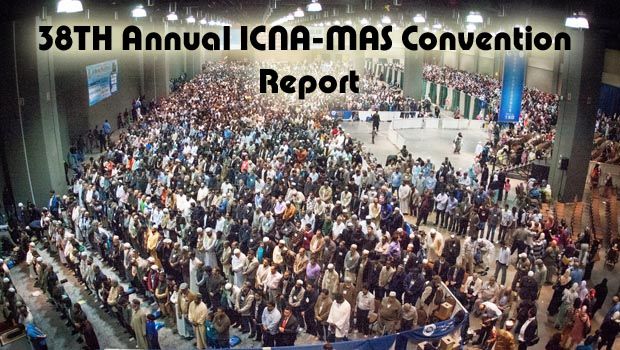Dr. Jamal Badawi gave a series of talks in Canada years ago titled “Islam in Focus.” Dr. Badawi researched, designed, and presented a 352-segment television series on Islam, which was shown by many local TV stations in Canada, the US, and other countries around the world. This is a transcript of one of his talks on zakah, one of the five pillars of Islam. It is being reproduced here for its high value and importance, as zakah is a religious obligation and a socioeconomic instrument that can help solve many problems in the world today and serve as a foundation in the campaign to establish social and economic justice in society.
What is the view of Islam on the use of a middle-person or broker?
In principle there is no problem with this. If a person has a function as a middle-person and is getting paid for it, there is nothing wrong with it. There is one thing that Islam restricts which is people acting as middle-persons in order to exploit people’s lack of knowledge and information.
To put it in economic terms, Islam insists on the free flow of information between buyer and seller. An example of this was reported in Al-Bukhari that the Prophet Muhammad tried to put a stop where a seller is on his way to sell his products and someone intercepts him before he reaches the market offering to buy it at a price and takes it and sells it at a much higher price. This was forbidden because the idea here is that the seller should come to the market first, find out what the going rate is for his goods and then determine how much he wants to sell it for. Otherwise any act of helping people with free flow of information is not restricted. In today’s complex economy one cannot do away with all middle persons but they can be reduced and provide open information.
How does Islam attempt to achieve justice both in terms of distribution of commodities as well as in distribution of income?
The most important means is zakah, which I translate as institutionalized charity. Second, there is voluntary charity. Third, there is the possibility of additional taxes beyond the minimum required institutionalized charity. It could also be achieved through the laws of inheritance which are basically some of the major means of achieving social justice and more equitable distribution of income in society. This not only covers equitable distribution of commodities but equitable distribution of income.
What is the meaning of the term zakah?
In the series about the pillars of Islam, in the seventh program we dealt with zakah as a basic pillar of Islam so we will refer to some of the material we covered there. Zakah is one of the five pillars of Islam which has been mentioned in the Qur’an in conjunction with prayers which is one of the most important requirements for Muslims. There are more than 80 verses in the Qur’an that mention it. It is mentioned that those who pay zakah are rewarded by God and those who do not are punished by God.
In the Qur’an in verses 24:56, 2:24, 9:34, and 51:15-9 we find vivid pictures showing zakah as an institution in a truly Islamic society. Zakah means purification and growth. It is purification because it helps purify one’s self from selfishness and miserliness and it results in blessings. The blessings are not just spiritual but also growth and economic blessing. I am trying to emphasize that aside from any other aspect of zakah it has to first be based on faith in God, love of God, the feeling of responsibility as the trustee of God on earth and that whatever property we have is a trust given to us and we have to dispense of it in ways which are pleasing and acceptable to Him.
Zakah or institutionalized charity is partly spiritual but it is not only spiritual – that would make it like any religion which calls people to be charitable. Zakah in Islam is unique as it is a combination of the spiritual ethical aspect as well as the meticulous organization and institutionalization aspects which are social, political, and economic.
Why is zakah more comprehensive than charity in other teachings?
A good reference that deals with this is a doctoral dissertation by Dr. Yusuf Al-Qaradawi which appears in a two-volume work, which is one of the most comprehensive works on zakah, called Fiqh al-Zakah or understanding of zakah. In this reference one can easily point out the social aspect of zakah. In a way, zakah can be regarded as a sort of social insurance against involuntary unemployment, against the inability to work, against certain disasters or unfortunate events that may take place. This would give a feeling of brotherhood, solidarity in society which would reduce jealousy, would reduce class struggle, and it makes members of society feel that they belong and enriches the feeling of belonging so that not too many people feel anti society and who might be driven to crime.
In a way it is psychological also because it trains the individual to have feelings of social concern and to stop the apathy that is destroying societies today. It makes the person feel a part of the system. It is not like other pension systems because in many of those schemes it depends on how much one contributed and whether or not one contributed. In the Islamic system regardless of one’s contribution, one is entitled to this social security. Second, it could be regarded as a political system because zakah can be regarded as a mechanism which joins the various segments of society and the various groups within society with the view of serving their interest and concern. Perhaps one of the most important elements of zakah is economical.
First of all, the system of zakah in Islam is one of the important means of fighting one of the greatest enemies of mankind – poverty, which is an international problem. It tries to fight poverty without killing individual initiative as it recognizes that people can have differences in their capabilities and talents. Islam doesn’t insist on superficial and full equality where everyone must give the same amount. In the meantime, it tries to work to reduce the gaps between rich and poor so that it allows for initiative but also looks after the needs of those who are in need.
A second economic aspect is that zakah being a regular annual determined thing provides for a stable source of income for the State to meet certain expenses and needs. A third aspect which is not as clear but is very important because of its economic implications is that by its very nature the system of zakah forces the individual to invest his money and discourages hoarding of money. Zakah is imposed every year and if money is not invested one will keep paying the required charity on it till they lose it. This in a way provides strong inducement to use it and not withhold it from circulation. As we have indicated in previous programs, many economists believe that this is essential for the health of the economy because if people keep wealth from being used, then we get depression and many economic problems.
When people invest their money this provides jobs and general prosperity in the economy. No wonder that we find many who study the system of zakah in Islam (both Muslims and non-Muslims) conclude that the system of zakah is quite unique and has never been preceded before by any other law or religious teaching in its comprehensiveness.
Could you clarify the main difference between zakah and taxes?
The reason that zakah is mixed up with taxes is due to the fact that even though they have differences, they also have some similarities. There are at least three similarities. Both zakah and taxes are compulsory. Second, both are collected by a given authority, i.e., government. Third, both are collected from members of society and are not collected because a specific service was received but is from members of society who are part of the total social solidarity.
There are also definitely basic and fundamental differences between zakah and taxes. First of all, as indicated earlier the very term zakah means blessing and purification and should be paid essentially as a matter of worship. This makes it quite different from taxes, because if one feels that you are paying your fair share and you are doing it out of your obligation towards God, you don’t try to find ways to evade it like with taxes.
We find an interesting example that was narrated in Ahmad and Al-Tabarani in Al-Kabir when some individuals came to the Prophet Muhammad and he was not aware that they gained wealth and they said: “We have this additional wealth and we would like to purify it, so please tell us how to pay zakah on it?” This happens because zakah is not something that the State imposes [just for economic reasons] and people know that they do this out of worship and obedience to God. A second basic difference is that when we talk about taxes it is dependent on the government which is determined by the need of the country or by the whims of those in power. In the case of zakah, the Qur’an itself, which is the Word of God, establishes its principles and the teachings of the Prophet determine a specific percentage of zakah which nobody has the right to change.

Zakah has to have a separate budget as it is directed to certain specified purposes as are specified in the Qur’an, of which there are eight categories, and is not automatically used by the State for other expenditures. A third difference is that the system of zakah is much more stable and constant because of the lack of argument about the rate. We should add that an interesting feature of the system of zakah in Islam is that it is money collected from those who are able to afford it and goes to the poor. In the system of taxation, it is usually imposed on everybody and a big burden falls on the middle class and the poor. Taxes sometimes have a reverse effect as those who are wealthy can get many tax breaks if they know how to play the game and in a way the poor finance the rich. In Islam zakah is strictly taken from those who are able to pay in order to help those who are in need.
Is Zakah based on capital or on income?
We cannot say that the system of zakah is an income tax because not every item of one’s income is subject to zakah. For example the part of one’s income that is used for basic needs such as food, clothing, housing, and transportation is not subject to zakah. Zakah is primarily imposed on your net worth but avoids taxes which are imposed on capital. Many people say if you impose taxes on capital then you are discouraging people from saving or investing. This is not the case in Islam for three reasons. One, zakah in Islam is imposed on property which is potentially growing. To clarify, there is no zakah due on the jewelry that a woman keeps for her personal use because this is something that doesn’t give additional wealth but is there for her use. There is no zakah on one’s professional tools. There is no zakah on one’s principal residence or car. Even if you are a merchant, you pay zakah on articles of trade not on fixed assets.
Second, it is very modest and reasonable and is most commonly 2.5% and there is a minimum which is exempt and is usually estimated at about 85 grams of gold or the equivalent in money. I should add that there may be certain types of zakah which are imposed on income that comes from agriculture or self employment. It is not exclusively an income or capital based tax.
With today’s economy there is no way that the government expenditures can be financed with only 2.5%, so how do we respond to the skeptics?
First of all, the tax rates in Western economy of 25%-30%, we are talking about income tax which is imposed on the income. In Islam, zakah is imposed on the net worth which is much more than an income that someone gets in a particular year. If for example a person has five or six high rises that he rents out, he will pay zakah on his net worth not just on the income. Historically speaking, as we mentioned in a previous program, during the reign of Umar ibn Abdul Aziz near the end of the first century of Hijrah, zakah from North Africa was collected and there weren’t enough poor people to claim it, which is why he instructed the local ruler to buy slaves and set them free.
Historically, this did happen and I am sure that even today if we just took the Muslim world and Muslims were true to their faith and everybody pays the 2.5% on their net worth, I am sure not a single person would be left hungry or in need. However, we are not saying that zakah is the exclusive source of income for a government as there is money that can be collected on the produce of the land, jiziah (the equivalent of zakah which non-Muslims pay which allows them to share in the overall cost of running the State), property that no one claims or inherits, and if need be, there can be additional taxes beyond zakah.
Is the 2.5% flexible? And if so what is the basis for it?
Zakah is a stable thing and no one has the right to change it because it was given in Revelation. If we open the door for zakah to be flexible, every government can exploit that and we would get unjust rulers who play around with it. This 2.5% is very reasonable, permanent, and not excessive. In the meantime we find that Islam allowed a just tax to be collected by the government if there is a need for it and if the amount of zakah is not enough. First, they have to start from zakah and if it is not enough then they can move to other things. There are a number of evidences in the Qur’an that speak about paying zakah and about being charitable which we find in verse 2:177.
The Prophet Muhammad said as is narrated in Al-Tirmidhi that in your property there is a claim beyond the amount of zakah, and this is a very sound and strong tradition. There are also additional texts that indicate that zakah is not the bare minimum. At the same time there must be a genuine need for the additional funds beyond zakah and the burden should be distributed in an equitable way and it should be spent wisely and done after the approval and consent of the people.






